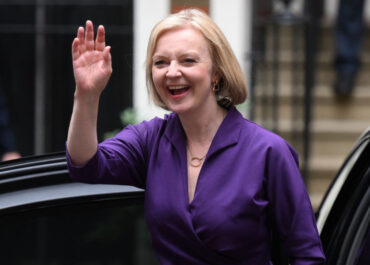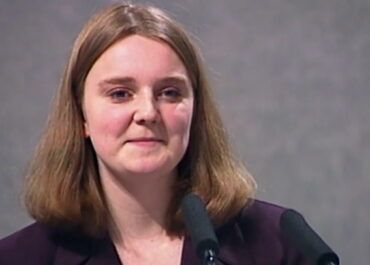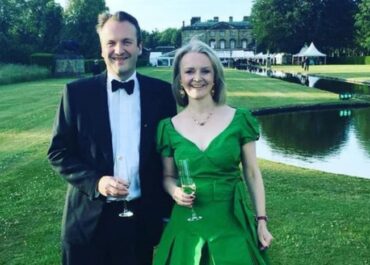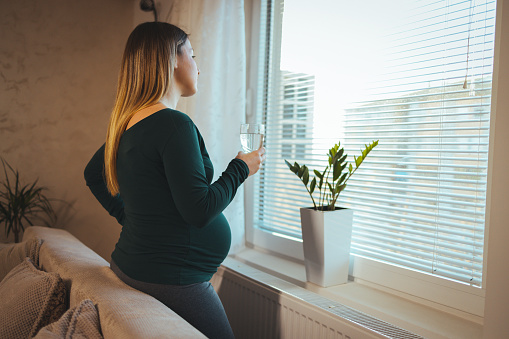- EU Trade Chief Maroš Šefčovič Urges MEPs to Support EU-US Trade Deal
- Paul Scholes names Arsenal star he would ‘love to play with’ despite criticism
- Hungary Accuses Ukraine of Lying, Vetoes in Tense Meeting This Week
- Tensions Rise Between France and US Ambassador Charles Kushner After No-Show
- Marcus Rashford makes Barcelona demand after talks over permanent Man Utd transfer
- Russia anticipated Kyiv’s capture within three days in 2022.
- Woman ‘driven to suicide by abusive partner’ left note saying she ‘couldn’t endure any longer’ | News UK
- Russia’s Territory Gains and Losses in Ukraine Over Four Years of War
Who is Liz Truss? Meet the UK’s next prime minister
Quick Summary
- Liz Truss becomes new UK PM after being appointed by the Queen at Balmoral Castle
- Boris Johnson tendered his resignation to the monarch earlier
- Johnson delivered a farewell speech at 7:30 BST and called on the party to unite behind Truss
- Truss will address the nation at Downing Street later today and is expected to unveil her cabinet
- She is under pressure to address the cost of living
Analysis
Who is Liz Truss? Meet the UK’s next prime minister
Liz Truss, the newly-appointed UK prime minister, has had an interesting political rise – from Liberal Democrat to Tory, from Remainer to Brexiteer. Who is Liz Truss? And what comes next?
Who is Liz Truss?
Her political journey has been a strange one, from liberal Democrat to Conservative, Remainer to Brexit enthusiast, it’s hard to imagine Liz Truss walking through the famous black door of No 10.
Following Boris Johnson’s announcement that he would be stepping down as PM, a long list of Tory hopefuls set about starting their bid for office. In the beginning rounds, Liz Truss remained in a steady third place seating – Rishi Sunak in first and Penny Mordaunt second.
It is therefore surprising that Truss has now found herself heading into Downing Street as the Tory party’s next leader and therefore the country’s latest prime minister.

Surprisingly, she managed to turn MP’s opinions and gain enough backing to face a summer of hustings against Rishi Sunak. And whilst the polls had tipped Truss as the favourite between the two – the margin in which she won was far smaller than what had been predicted.
Truss is walking into an economy on the brink amid a soaring cost of living crisis that shows no signs of slowing down. Truss, the fourth Tory prime minister in the past 12 years – will now hold office until the next general election (2025).
Not only is she inheriting a disastrous economy but a litany of failures from the former prime minister means winning over the public is an uphill battle that could see the Conservative reign come to an end in the next general election.
What kind of prime minister will she be?
David Gauke who served in the cabinet with Truss during the Brexit battles says the new PM has always been ambitious. “I think Liz has always been ambitious, she’s always been someone who has said to herself, ‘Well why not me, why can’t I make it to the very top?'” he said.
Truss believes in “straightforward Conservative values” such as a smaller state, marking a striking difference from her predecessor. She is “an outsider” with a disregard for expert advice.
Liz Truss early life
Mary Elizabeth Truss was born in Oxford to left-wing parents in 1975. She is the eldest of four siblings.
Her mother Priscilla was a member of the Campaign for Nuclear Disarmament and took a young Liz on “ban the bomb” marches where she says she chanted anti-Thatcher slogans.
Truss has described her parents as “to the left of Labour” and says that although her mother now supports her campaign, she’s not sure her father would vote for her.
The family later settled in Leeds, where she attended a state comprehensive that she says let pupils down through “low expectations.” She credits this experience with inspiring her to go into politics.
She has been described by former pupils as “extremely clever and generally regards as a ‘swot’ in the terminology of the 1980s and 1990s.” A former teacher said she was “clever, but you wouldn’t have marked her out.”
The school sent a small number of pupils to Oxbridge every year at the time and Truss won a place to study politics, philosophy and economics at Merton College, Oxford.

She has described herself as a “plain-speaking Yorkshirewoman”.
Liz Truss Liberal Democrat student
Truss became president of the Oxford University Liberal Democrats and campaigned to abolish the monarchy. In 1994, she moved a motion at the party’s annual conference in Brighton, declaring “we Liberal Democrats do not believe people are born to rule.”
By the time she graduated in 1996, Truss had started to move towards the Conservatives – she went on to work at Shell and later in government relations for Cable & Wireless.
Lord Robertson of Port Ellen remembers her ambition during the time and told her to go for a seat. “She was very interested in politics and was a Tory, and I encouraged her to go for a seat,” he told Sky News. “She was smart and fresh-thinking; I said the Conservative Party needs people like you.”
She unsuccessfully contested two seats in West Yorkshire in 2001 and 2005, she was picked out by David Cameron and selected for the seat of Southwest Norfolk in 2009. By this point, she had married and had two young daughters.
Members of the local party tried to have her deselected for failing to declare an earlier affair with married Tory MP Mark Field. Her battle with party members in the constituency made national headlines for many weeks, and Truss eventually won them over in a vote and managed to hold onto her seat.
Lord Robertson added: “She’s obviously a fighter, she showed real grit when they took her on, and there was an element of prejudice there.”
Liz Truss government career
Truss started in government in 2012, coming in as a junior education minister – she tried to push through some controversial reforms to childcare.
Mr Laws, the then school minister in the department, suggested Truss was not a good listener but an “engaging minister.”
“I always found Liz to be a very engaging minister, somebody was pleasant to work with,” he said.
“But she isn’t necessarily one of the world’s best listeners. She tends to speak at people and over them rather than listening to their views.”
Liz Truss Cabinet career
Truss’s first cabinet role was as environment secretary where she became known for her strange speech on Britain’s imported cheese.

In 2016, Truss was writing speeches and articles campaigning for Britain to remain in the EU alongside then PM David Cameron and George Osbourne.
But she would switch sides and, as trade secretary, she energetically pursued deals, many of which rolled over from Britain’s EU membership. This switch brought in plenty of support for Truss from the right of the party.
Under Boris Johnson she became the country’s foreign secretary and took a hard line on Russia, raising the alarm about the threat of China and has helped secure Brits held in Iran.
She is passionate about economic issues and colleagues say that it was at the Treasury that her ambitions and image really took off.
Sonia Khan was a special adviser to Philip Hammond, the chancellor when Ms Truss was appointed chief secretary to the Treasury in 2017.
“I think the Treasury was the making of Liz, it was where she gained so much confidence after losing her justice job,” she said. “She came into her own and revitalised her image. You saw the floral outfits disappear and you saw her wear power suits, and really bold colours, which I think reflected newfound confidence.
“It’s where she discovered social media. She’d found a space to cultivate who she is. She’s funny, she’s quite good with puns, she’s got an eye for making sure a picture looks good.”
Khan described Truss as the “queen of Instagram” and that boosted her profile within the cabinet. “It was very clear that she had this very, very keen political eye for the policies that she wanted to own and promote on social media.”
https://www.instagram.com/p/CiH8ayjgjB1/
Liz Truss as prime minister
Truss has promised some bold and radical measures to bring the soaring energy prices down and tackle the crippling cost of living crisis. And those who know her say she has the inner steel to drive them through.
But she’s inheriting a grim economy, a divided party and an exacerbated public – and she won’t have long to win over colleagues and the public.
What nationality is Liz Truss?
British. Mary Elizabeth Truss (born 26 July 1975), better known as Liz Truss, is a British politician who has served as Prime Minister of the United Kingdom and Leader of the Conservative Party since 2022. She has been Member of Parliament (MP) for South West Norfolk since 2010.
Where was Liz Truss born?
Oxford.
Does Liz Truss have a degree?
Yes. From Merton College (1996)
How old is Liz Truss?
47 years (26 July 1975)
Like this article?
News Desk
Leave a comment
Subscribe to Updates
Get the latest creative news from FooBar about art, design and business.


